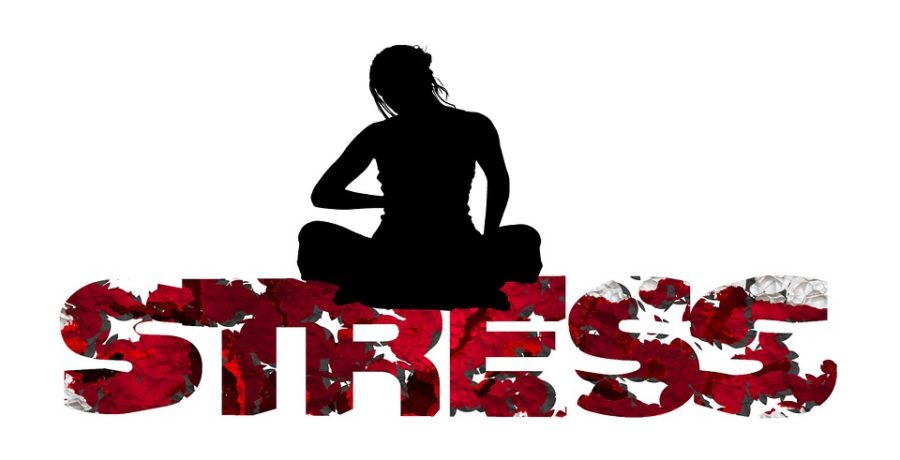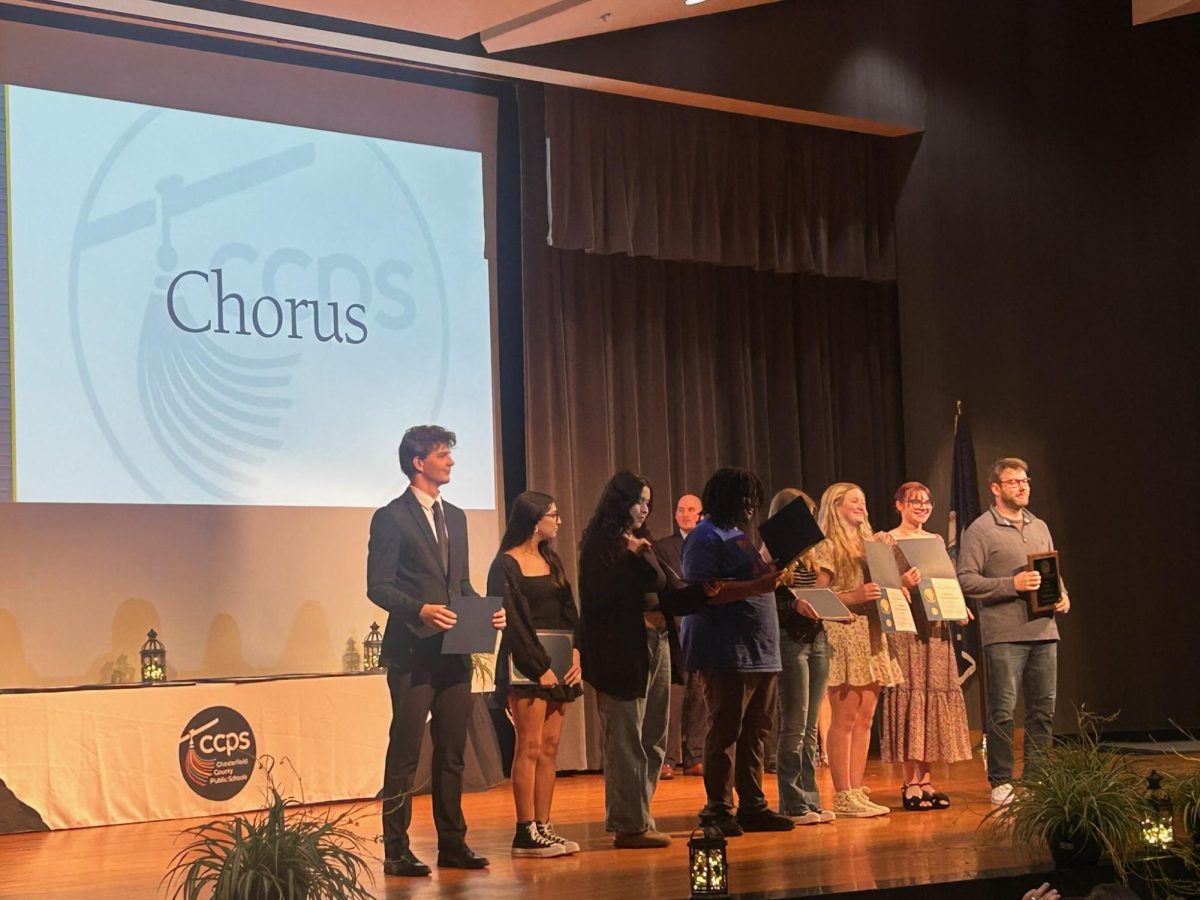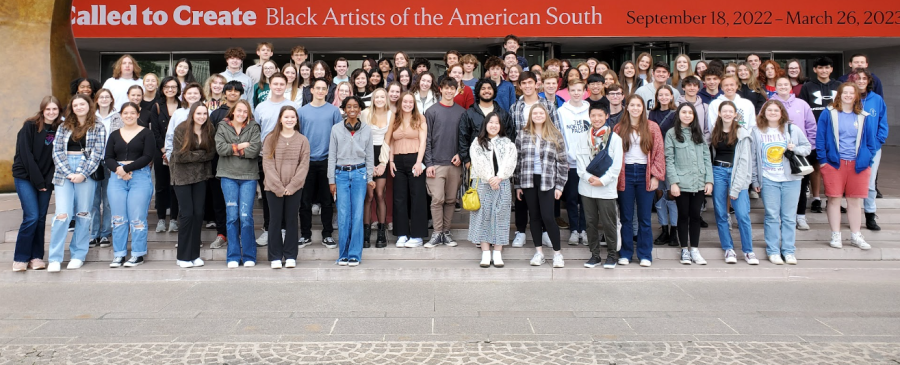As midterms, projects, and last minute tests come increasingly close to students, paired with the stress of the upcoming holiday season, tensions inevitably build up. Remembering, and most importantly practicing, to have a clear mind during these difficult few weeks is important to stay mindful and productive even in the midst of studying.
With the anticipation of winter break, teachers, administrators, and students all share a common feeling of restlessness, while the element of noticing their quality of body and mind is occasionally put in the back seat. The deadlines and reminders build up, causing a feeling of hopelessness or anxiety, which only distracts from completing these daunting tasks, inadvertently uprooting more stress.
The vicious cycle continues year after year, holiday after holiday, ironically causing more headaches than happiness during the most “wonderful time of the year.” Psychologists and therapists have noticed this trend over the past decade and have worked on finding several effective remedies to combat this anxiety-ridden time, with almost all promoting the benefits of mindfulness.
Listed are a handful of tips, tricks, and techniques to help improve the state of mind of any struggling student, regardless of what the holiday season holds for them. Find more information and an in-depth analysis on the effects of staying cool, calm, and collected here.
- Pace yourself: Don’t wait until the last minute to study. Cramming before a test rarely yields good results because of the information not having sufficient time to fully absorb itself into the brain. At the same time, don’t necessarily study too early and then forget everything. Instead, find a happy medium: once the test date is assigned, set a timetable for reviewing material, even if at first it’s only for 15 minutes a night. As exam day nears, prioritize parts that aren’t sticking, rather than continuously going over material that’s already been studied. Pacing allows one to take their time, relax, learn the material, and most importantly, ask the teacher ahead of time if something isn’t completely clear to them.
- Exercise: Exhausting one’s mind doesn’t have much benefit, but exercising the body can help both the mind and body. Placing in a set period of time to go for a run, play a sport, or just simply taking a few minutes to stretch helps the mind to release any potential buildup of stress or anxiety. An elevated heart-rate after a workout can also help to increase alertness, dopamine release, and focus.
- Meditate: Simply taking 5-15 minutes a day leading up to a big exam to think about absolutely nothing can increase cognitive functions and become more in touch with the surrounding world. Mediation apps, such as Calm and Headspace, assist both beginners and experts to center themselves in an inviting and warm space. Many people, especially students, have endless thoughts in the back of their heads and can rarely settle down the bustling mind, but incorporating meditation into a daily routine helps one live more in the present, as opposed to having subconscious distractions.
- Listen to classical music: Whether it be before or during studying, classical music can help to improve retention, focus, and- from the Mozart Effect– intelligence. Eliminating distractions, one of those could be trying to pick up on lyrics said throughout a song, but stimulating brain activity, a known effect provided from listening to artists such as Mozart or Beethoven, gives classical music its widespread benefits for struggling students. The wordless melodies also lets the mind settle after an intense study set or lessens anxiety before walking into an exam.
- Count to three: The day of the test moves fast; this can be very overwhelming. Even if time feels short, it can be worth sparing three seconds to take a quick break and rejuvenate. If panic starts to set in, put down the pencil, look up at the ceiling or out the window, take a deep breath, count to three, breathe out slowly, and get back to the test.
- Get plenty of sleep and eat a nutritious breakfast: A known phrase that every student has heard countless times, though it holds true the night before and morning of a stressful test. If the clock reads 2 AM and a student’s eyes burn from the computer screen, they need to turn off the computer, put down the flashcards, brush their teeth, and settle under the covers. 7-10 hours of sleep is recommended for any person, but for students, these hours are crucial to help repair the mind and in-place the studied material for retention. Sleep psychologists have noted that sleeping right after one studies important information for an exam, assessment, or test sets the material into the frontal lobe that is used for remembering and bringing thoughts back from when one has studied them. As far as the morning of, don’t eat donuts, sugary cereal, or even a glass of orange juice. These foods and beverages are filled with simple sugars and carbs, which stimulate the mind for a limited amount of time, but after that stimulation ends, a crash occurs, leaving the individual feeling exhausted and lethargic. Instead, eat a breakfast full of complex carbs, fats, and protein; avocado toast, an egg and bacon sandwich, oatmeal, or a kale smoothie. These kinds of foods help give the brain and body nourishment that sticks with someone for the morning, the test, and throughout the day.
The ways to stay mindful doesn’t stop at one’s house either. Midlo offers many opportunities, especially during midterm season, to de-stress and settle the busy mind. Talk to a counselor if the holiday season anxiety seems overwhelming, and perhaps ask for permission to visit the FAR room to decompress. Midlo strives to provide a safe-space for all students during such a stressful time.
One last thing to keep in mind as Midlo heads into midterm week: after the test or exam concludes, don’t continue to stress or overthink it. It’s done, finished, and as long as one has given it their best shot, there’s no need to worry. Breathe and let it go.














